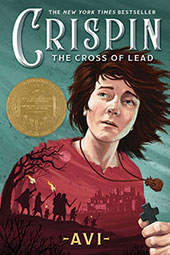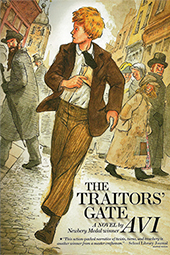As I continue to answer the questions I am most often asked, I’ve been given two more questions.
Question one: “Do you work to write the way the people spoke in the past?”
This is actually a complex question. The answer, simply put, is that it depends on the context of the book I am trying to write. Consider, I do write in English. But if I am writing an historical novel set in 14th Century England, (say Crispin) as contrasted with one set in 18th Century England (The End of the World and Beyond) or 19th Century England (The Traitor’s Gate) the historical English spoken will differ. There is very little 19th Century English we could not understand. 14th Century English would be, for the most part, gibberish. I don’t want to write in such a way that my readers will be discouraged from reading the book. Therefore, I try to use a few words from the time period to give some flavor—so to speak—as to how the language was used.
Question two: “Do you work with a daily word count quota in mind? Do you work on other projects simultaneously?”
I am an early riser, and as I sit before the computer, cup of coffee near to hand at 7 AM, I am trying to decide what I am going to accomplish that day. Rewrite chapter 5? Get on with the unwritten chapter 36? Go through the whole book, rewriting as I read? So no, no daily quota. But always there is a general deadline looming on the not-so-distant horizon. I do need to submit a book by then. I work constantly toward that goal. No surprise, some days I am more successful than others. Call it an annual quota.
As to simultaneous projects, the answer is yes. Thus when I submit the draft of the book I am currently trying to finish, there will be time (more or less) before I hear from my editor. During that time I will be working on another book. Thus, at this particular moment, I am trying to finish the first draft of book A, waiting for proofs of book B, working with an editor to finalize the book cover design for book C, researching the next project, Book D. In short, I am always working on something.


